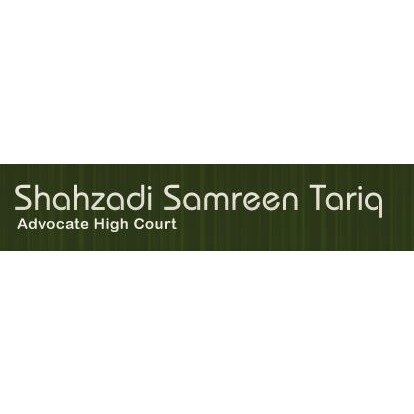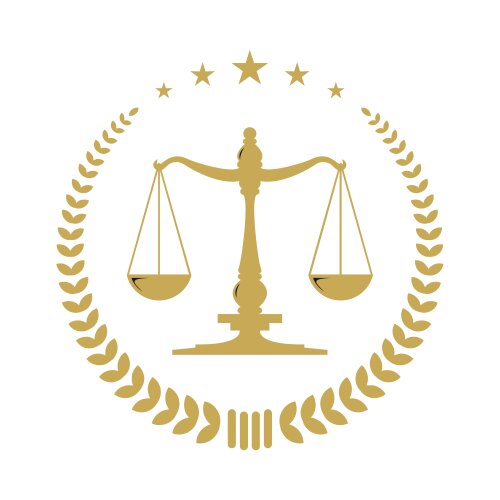Best Job Discrimination Lawyers in Islamabad
Share your needs with us, get contacted by law firms.
Free. Takes 2 min.
List of the best lawyers in Islamabad, Pakistan
About Job Discrimination Law in Islamabad, Pakistan
Job discrimination occurs when an employee or a job applicant is treated unfavorably because of characteristics such as race, skin color, ethnicity, religion, gender, disability, or age. In Islamabad, Pakistan, job discrimination is addressed under various laws, including the Constitution of Pakistan, which provides the basic right of equality before the law and prohibits discrimination on the basis of sex, race, religion, and other grounds. Specific laws such as The Protection against Harassment of Women at the Workplace Act 2010, also aim to prevent discrimination and harassment in the workplace. Despite existing laws, the enforcement and awareness of job discrimination laws can often be challenging in Islamabad.
Why You May Need a Lawyer
Individuals may require legal help in job discrimination cases for various reasons. You might have been denied employment, promotion, or certain benefits due to discriminatory reasons. You could be facing a hostile work environment because of your religious beliefs, sex, or ethnicity. A lawyer can help in filing a complaint with the relevant authorities, represent you in legal proceedings, and ensure your rights are protected under the law. Legal counsel could also be sought for advice on creating a workplace policy that includes anti-discrimination measures, thus avoiding potential legal issues for employers.
Local Laws Overview
The laws in Islamabad that are relevant to job discrimination are derived from the Constitution of Pakistan and other specific Acts and Ordinances. Article 27 of the Constitution stipulates that no citizen should be discriminated against in matters of employment on the basis of race, religion, caste, sex, residence, or place of birth. The aforementioned Protection against Harassment of Women at the Workplace Act 2010 is also a critical piece of legislation that provides a mechanism for addressing complaints of harassment and discrimination. However, it is important to note that these laws can be complex and interpreted in varying ways. Hence, consulting with a lawyer becomes crucial to understand how these laws apply to specific cases.
Frequently Asked Questions
What constitutes job discrimination in Islamabad?
Job discrimination includes any unfavorable treatment based on personal characteristics such as race, gender, religion, or disability. This can occur in hiring, promotions, job assignments, termination, and compensation.
Is there any protection against job discrimination for the LGBTQ+ community in Islamabad?
As of the current laws, there are no explicit protections for the LGBTQ+ community in workplace discrimination in Pakistan. However, avenues for civil rights advocacy are growing, although challenges remain substantial.
Can I file a complaint against job discrimination anonymously in Islamabad?
You may be hesitant to reveal your identity when filing a complaint, but most legal proceedings require the complainant's information. A lawyer can provide advice on how to proceed while protecting your interests to the extent possible under the law.
How long do I have to file a claim of job discrimination?
The time limit to file a claim can vary depending on the specific circumstances and the law under which the complaint is being filed. Typically, it is advisable to consult with a lawyer promptly after the discriminatory act occurs.
What kind of evidence do I need to prove job discrimination?
Evidence can include emails, witness testimony, employment records, and any other documentation that indicates discriminatory practices. A lawyer can help to gather and present the necessary evidence.
Are there any laws in Islamabad that protect against discrimination based on pregnancy?
Under Pakistani labor laws, there are protections for pregnant women, including maternity leave and certain job protections. However, discrimination on the basis of pregnancy can be nuanced and legal advice is often necessary.
What remedies are available if I am a victim of job discrimination?
Possible remedies may include reinstatement to your job, compensation for lost wages, promotion, or a formal apology, depending on the circumstances of the case.
Can my employer retaliate against me for filing a complaint?
Retaliation against employees for filing a complaint is prohibited under Pakistani law. However, such cases are complex and legal support is crucial to navigate through them.
Does Islamabad have any government bodies that specifically handle job discrimination complaints?
There are various government departments and bodies that may handle discrimination complaints, such as the Federal Ombudsman and the Ministry of Human Rights.
Can a lawyer help me draft an anti-discrimination policy for my business?
Yes, a lawyer can assist in drafting workplace policies that comply with local laws and help prevent discrimination and harassment at work.
Additional Resources
For additional support and information, you may consider contacting: - The Ministry of Human Rights - The Federal Ombudsman - Human Rights Commissions and civil society organizations focusing on labor rights These bodies and organizations may provide guidance and further information regarding job discrimination and how to address it.
Next Steps
If you need legal assistance in job discrimination, the next steps would be to document any evidence of the discriminatory practice and seek a legal consultation. A lawyer specializing in labor laws will evaluate your situation, help you understand your rights, and explain the options available to you. They will guide you through the process of filing a complaint, negotiating a settlement, or proceeding to litigation if necessary.
Lawzana helps you find the best lawyers and law firms in Islamabad through a curated and pre-screened list of qualified legal professionals. Our platform offers rankings and detailed profiles of attorneys and law firms, allowing you to compare based on practice areas, including Job Discrimination, experience, and client feedback.
Each profile includes a description of the firm's areas of practice, client reviews, team members and partners, year of establishment, spoken languages, office locations, contact information, social media presence, and any published articles or resources. Most firms on our platform speak English and are experienced in both local and international legal matters.
Get a quote from top-rated law firms in Islamabad, Pakistan — quickly, securely, and without unnecessary hassle.
Disclaimer:
The information provided on this page is for general informational purposes only and does not constitute legal advice. While we strive to ensure the accuracy and relevance of the content, legal information may change over time, and interpretations of the law can vary. You should always consult with a qualified legal professional for advice specific to your situation.
We disclaim all liability for actions taken or not taken based on the content of this page. If you believe any information is incorrect or outdated, please contact us, and we will review and update it where appropriate.
















